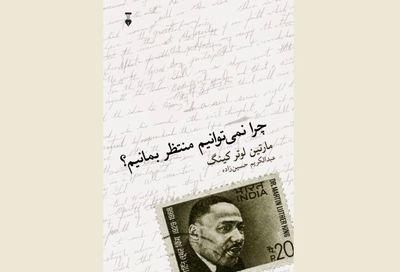In 1963, Birmingham, Alabama, was perhaps the most racially segregated city in the United States. The campaign launched by Martin Luther King, Jr., and the Civil Rights movement on the segregated streets of Birmingham demonstrated to the world the power of nonviolent direct action.
In this remarkable book, Nobel Peace Prize winner Dr. King recounts the story of Birmingham in vivid detail, tracing the history of the struggle for civil rights back to its beginnings three centuries ago and looking to the future, assessing the work to be done beyond Birmingham to bring about full equality for African Americans.
Above all, King offers an eloquent and penetrating analysis of the events and pressures that propelled the Civil Rights movement from lunch counter sit-ins and prayer marches to the forefront of American consciousness.
Since its publication in the 1960s, “Why We Can’t Wait” has become an indisputable classic. Now, more than ever, it is an enduring testament to the wise and courageous vision of Martin Luther King, Jr.
Martin Luther King, Jr. was one of the pivotal leaders of the American Civil Rights movement. He was a Baptist minister, one of the few leadership roles available to Black men at the time. He became a civil rights activist early in his career. He led the Montgomery Bus Boycott (1955–1956) and helped found the Southern Christian Leadership Conference (1957), serving as its first president.
His efforts led to the 1963 March on Washington, where King delivered his “I Have a Dream” speech. Here he raised public consciousness of the civil rights movement and established himself as one of the greatest orators in U.S. history.
In 1964, King became the youngest person to receive the Nobel Peace Prize for his efforts to end segregation and racial discrimination through civil disobedience and other non-violent means.
King was assassinated on April 4, 1968, in Memphis, Tennessee. He was posthumously awarded the Presidential Medal of Freedom by Jimmy Carter in 1977.
Source:Tehran Times

